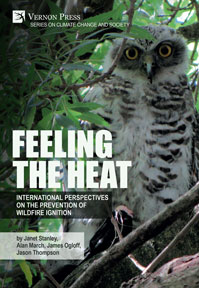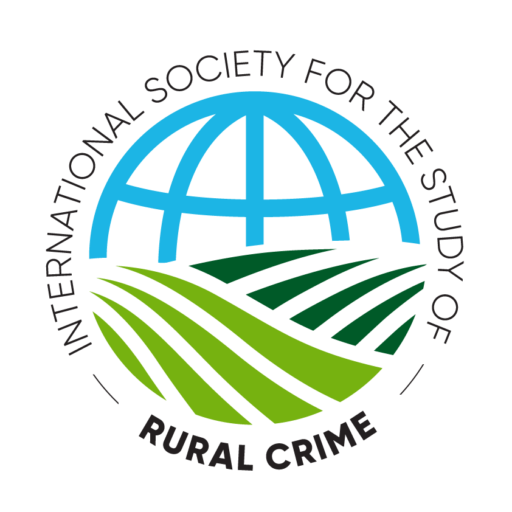ISSRC Blog
This blog provides an opportunity for pithy observations or reflections on topical rural crime news and developments, a summary of research, promotion of publications, advertisements for upcoming events… and more! If you would like to contribute, email a submission of no more than 500 words to admin@issrc.net
ISSRC Awards Program: New scholar award now open
NOW OPEN! APPLY NOW!
The Joseph F. Donnermeyer New Scholar Award
(Early Career Researcher Award, single applicant)
Download the guidelines for the Joseph F Donnermeyer Award
- This award is given to an early career researcher for a publication pertaining to rural criminology. Sole or multi-authored publications can be submitted but only one applicant can receive the award.
- The nominee can be self-nominated or, nominated by other persons, with the nominee’s permission.
- The nominee can be based at a university or other higher education institution or, non-government or industry role, but they do not have to be in a position of employment.
- The publication can be a journal article or book chapter accepted for publication or published (in print or online) within the last 12 months.
- The application is to be accompanied by a nomination (not exceeding one A4 page) that provides a short career overview relevant to the nominated article in rural criminology.
- Previous applicants are eligible to apply in subsequent years.
- An early career researcher is defined as someone who is less than 7 years since being awarded their PhD.
- Applicants further than 7 years out who have experienced career interruptions (as outlined below, drawing on definitions provided by the Australian Research Council) are eligible for the award and should provide a brief outline of the interruption in their application (in addition to the one-page nomination).
Career interruptions – where the period of time claimed should be commensurate with the interruption – can be understood as:
- Disruption due to international relocation (not exceeding three months per move)
- Carer responsibilities
- Being the primary carer of a dependent child (two years per dependent child, inclusive of any period of parental leave, with no maximum identified)
- A primary carer of a dependent child who has had extensive caring responsibilities (due to for instance, illness and / or disability) is eligible for a further extension (in addition to the two years)
- Parental leave
- Medical condition
- Disability
- Non-research employment not concurrent with research employment
- Unemployment
Submissions to be sent to admin@issrc.net and received by 31 October 2020
Please direct enquiries to: bridget.harris@qut.edu.au
Winner to be announced at the ISSRC Annual General Meeting, 1-2 December 2020
Details of the full ISSRC Awards Program available here.
Rural access to justice during COVID
At the end of August 2020, the Deakin University Law School hosted an online lunchtime event entitled Access to Justice during COVID: The rural and regional experience.
“Description: The pandemic has no doubt had an impact on everyone, however it has had a significant impact on those living in rural and regional towns. Access to justice is an issue for many members of our community with barriers such the tyranny of distance, lack of public transport and a lack of awareness of services that may be able to assist. With the restrictions due to the pandemic this has further compounded these access to justice issues.”
The presenter was Sejal Amin, Principal Lawyer at the Goulburn Valley Community Legal Centre in Shepparton, Victoria:
“Sejal Amin was admitted to practice as a lawyer in 2009 and has worked predominantly in the non-for-profit/government sector. She has previously worked at Victoria Legal Aid, Victoria Police and the Office of the Freedom of Information Commissioner. She moved from Melbourne to Country Victoria; Shepparton in 2015 and joined the team at the Goulburn Valley Community Legal Centre (GVCLC) to manage a three year pilot Therapeutic Justice Program (TJP). Following the completion of this pilot program in 2018, she decided to stay and settle in Shepparton. She has been working with GVCLC for 5 years and enjoys working in the country.”
The video of the event can be accessed here.
New book – “Feeling the heat”
Post by Janet Stanley
One of the least discussed, yet most dangerous crime that occurs in rural areas, is illegal fire-lighting, which may result in a dangerous wildfire. Internationally, often well over 85 percent of wildfires are believed to be directly or indirectly started by human activity. Such activity may be due to a person accidently or recklessly lighting a fire without a permit, or a camper leaving their fire unattended. Alternatively, a person may maliciously light a fire. They may be hoping to hide a crime or claim insurance, or they may be responding emotionally to past trauma. Indirectly, a wildfire may be ignited by power lines or by a lightning strike, the latter increasing in frequency due to a failure to address climate change.
In the past, most wildfires were comparatively easy to extinguish. However, with the impact of climate change, fires are now becoming larger, more unpredictable, and dangerous. They are proving much harder to control and extinguish, and as a result have a greatly increased impact on people and the environment.
Thus, the task of preventing the ignition of wildfires has grown in importance. Yet, there are few fire prevention programs in place and those that are present, are rarely examined for effectiveness. Scant research funds have been allocated to the prevention agenda, along with little interest in this topic in academic journals. Hence a book has been published on the topic.
 Stanley, J, March, A, Ogloff, J. & Thompson, J (2020) Feeling The Heat: International Perspectives on the Prevention of Wildfire Ignition, Vernon Press.
Stanley, J, March, A, Ogloff, J. & Thompson, J (2020) Feeling The Heat: International Perspectives on the Prevention of Wildfire Ignition, Vernon Press.
The book is available directly from Vernon Press. Contact Associate Professor Janet Stanley at Melbourne University for a discount code.
This interdisciplinary book reviews current international knowledge and presents new findings on political, spatial, psychological, socio-ecological and socio-economic risk factors. Feeling the Heat argues that if we are to reverse the increasing occurrence and severity of wilfires, all prevention approaches must be utilised, broadening from current heavy reliance on environmental modification.
